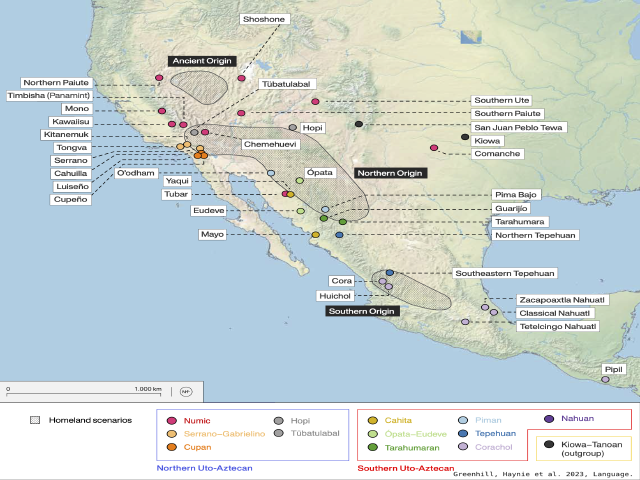A recent northern origin for the Uto-Aztecan family

Authors:
Citation:
Details:
Published: 2 February, 2023.
Download:
Abstract:
The Uto-Aztecan language family is one of the largest language families in the Americas. However, there has been considerable debate about its origin and how it spread. Here we use Bayesian phylogenetic methods to analyze lexical data from thirty-four Uto-Aztecan varieties and two Kiowa-Tanoan languages. We infer the age of Proto-Uto-Aztecan to be around 4,100 years (3,258–5,025 years) and identify the most likely homeland to be near what is now Southern California. We reconstruct the most probable subsistence strategy in the ancestral Uto-Aztecan society and infer no casual or intensive cultivation, an absence of cereal crops, and a primary subsistence mode of gathering (rather than agriculture). Our results therefore support the timing, geography, and cultural practices of a northern origin and are inconsistent with alternative scenarios.